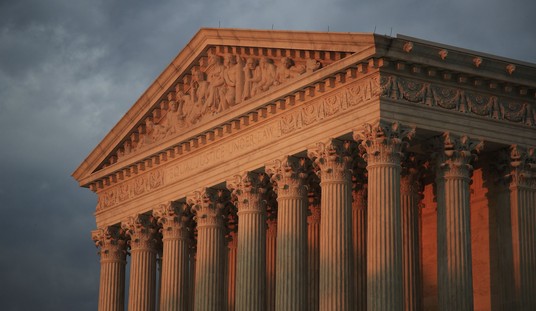President Obama recently proposed $50 billion in spending on infrastructure projects. The purported goals of the initiative are to improve America’s bridges and roads and create thousands of new jobs for Americans at the same time. Sound great, right? Unfortunately, when evaluating proposals that claim to “create jobs,” it’s important to realize that not all jobs are created equal. In particular, public sector jobs, which have to be supported with tax dollars, can often be counterproductive in terms of expanding the economy.
When government hires a worker, it has to come up with the money to pay that worker. That means that the government either has to raise taxes or borrow money—in either case, it's taking money out of the private sector and putting it in the government’s control. Some government jobs are necessary to provide the infrastructure and security we need so that the private sector can survive and expand. For example, if we had no military and had to worry about being invaded by a hostile enemy, that would be detrimental for the economy. Few would want to invest their money in creating companies or in developing property if there was a real threat that our government would be overthrown. Similarly, the private sector needs a functioning court system so that parties entering into a legal contract can be confident that the terms will be honored or the offending party will face punishment.
Government jobs like these clearly add to the public good and enable the private sector to function. They are necessary and would pass any cost-benefit analysis. Yet too many government jobs don't pass this test and aren't facilitating the functioning of the private sector. In fact, too often these public employees are actively impeding the private sector by issuing rules and regulations that make it more difficult for the market to function. As of November 2008, the Department of Agriculture boasted 82,000 employees. The Department of Energy, 50,000. The Department of Housing and Urban Development, 9,000. And the Environmental Protection Agency, 18,000. Most Americans instinctively know that many, if not most, of these jobs aren't adding to the public good. They are a burden on the private sector.
Recommended
And, research shows they are often a considerable burden.
According to numbers from the Bureau of Labor Statistics, federal employees are paid $8,000 more on average than their counterparts in the private sector. When the benefits packages of these federal workers are also considered, the gap rises to about $30,000. Since President Obama took office in January 2009, the private sector has shed jobs in just about every industry, but the number of workers on federal government payrolls has increased by about 120,000. Just the $30,000 of overpayment of those new workers amounts to an astounding $3.6 billion per year. That’s significant taxpayer money that’s being spent just on too-high salaries. Undoubtedly, billions more are wasted on unnecessary workers.
Today, we have a contracting private sector and expanding public sector. The result is that the federal government is racking up major deficits. Ironically, this bigger government, even the initiatives that are specifically supposed to “create jobs,” discourages private sector hiring.
Taxes from individuals and businesses have to pour into government to pay federal employees, and when taxes aren't enough the government borrows billions more from the private sector to make up the gap. If these resources stayed in the private sector, they could be used by businesses to create more efficient, sustainable jobs. Business owners and leaders have a profit motive in mind when they hire new workers. They pay an employee based on the value of what they can contribute, and expect their business to be more profitable as a result. If private sector workers don’t do their jobs or fail to produce, they are fired and replaced with someone who will work harder or better. This kind of competition makes us all better off, because the quality of goods and services gets better when they are produced by the best labor.
This isn't the case with government workers. Government faces no meaningful pressure to ensure that a new worker passes a cost-benefit analysis.
While so many Americans look for work, the first priority of President Obama and his administration should be job creation. But they should focus on job creation that happens naturally in the private sector, where jobs are sustainable and productive. Attempts to create artificial demand for work in the government may employ some people in the short run, but in the long run, government job creation creates a burden on the private sector, where real productive job creation occurs. Instead of another government “jobs” program, it's time for Washington to let the free market work to employ more Americans in jobs that grow our economy and allow our work force to reach its full potential.

























Join the conversation as a VIP Member